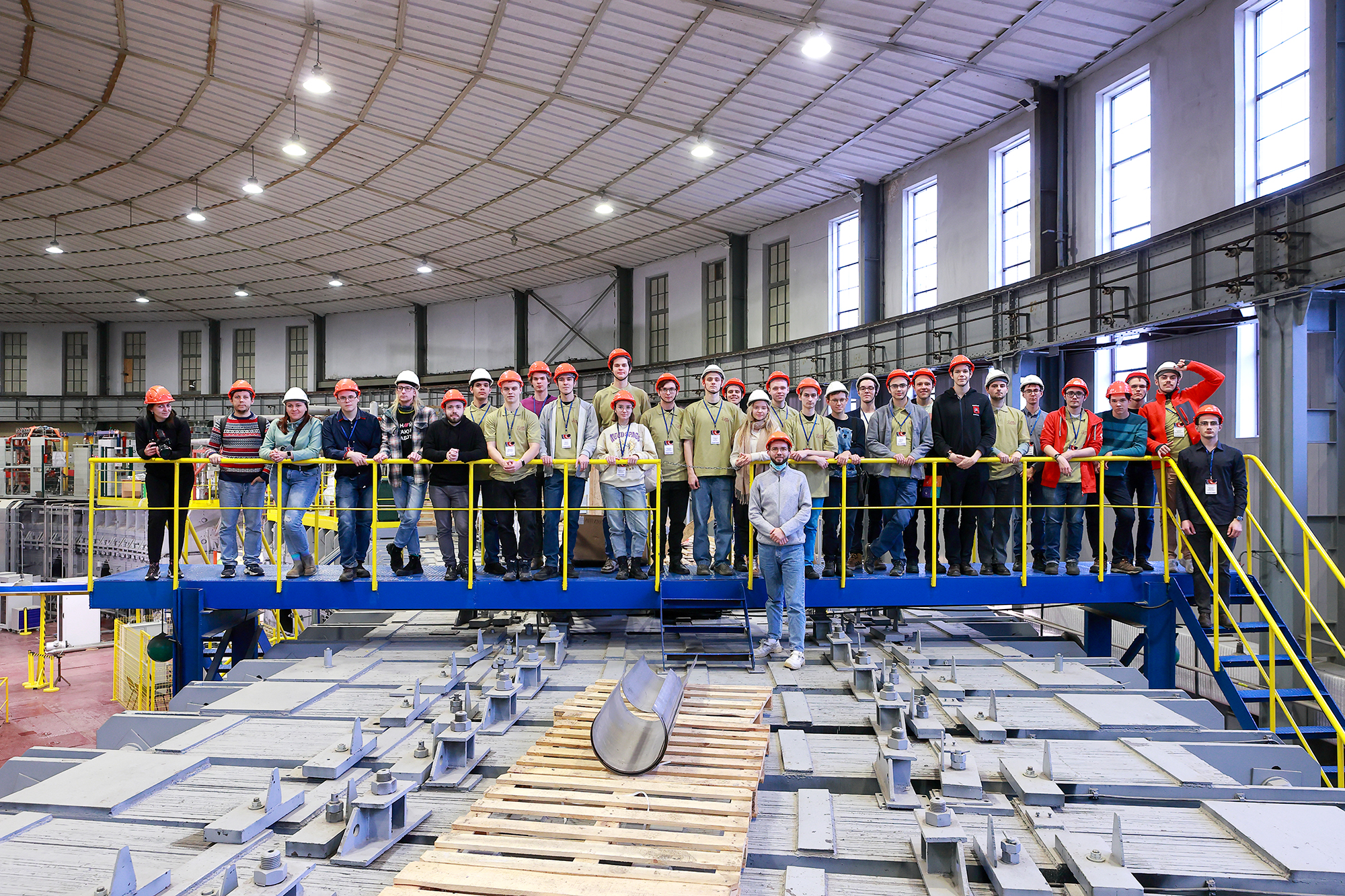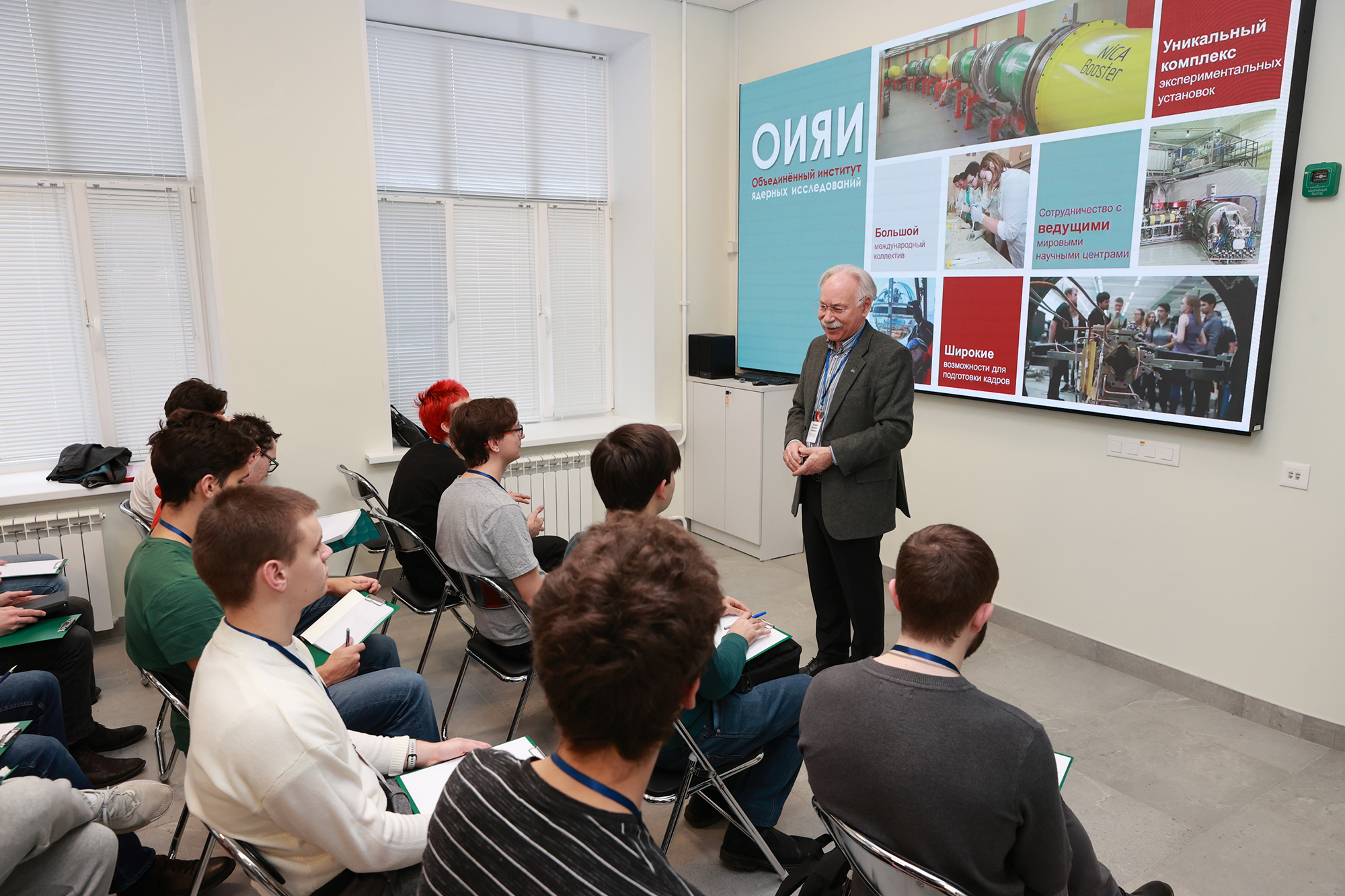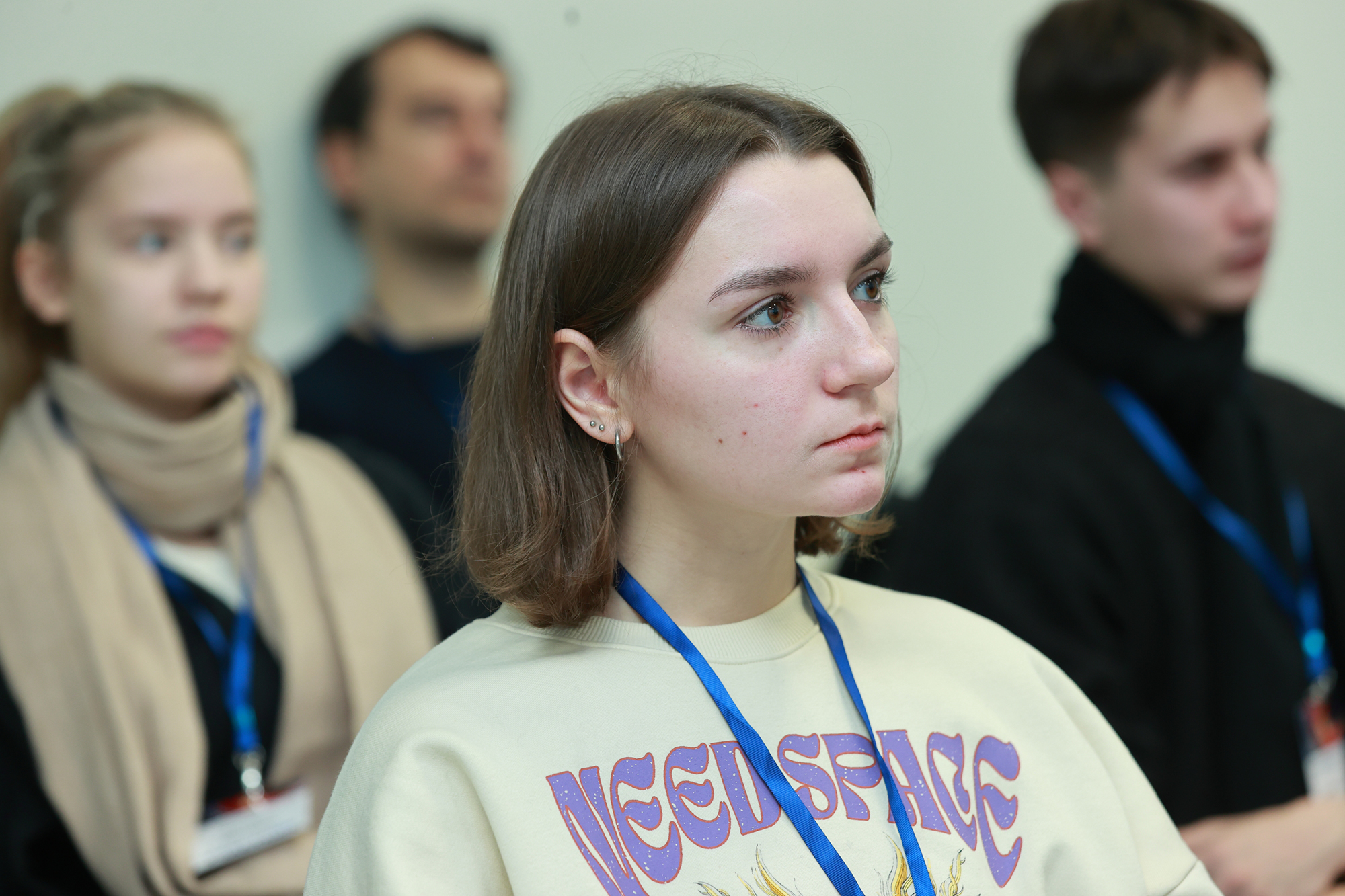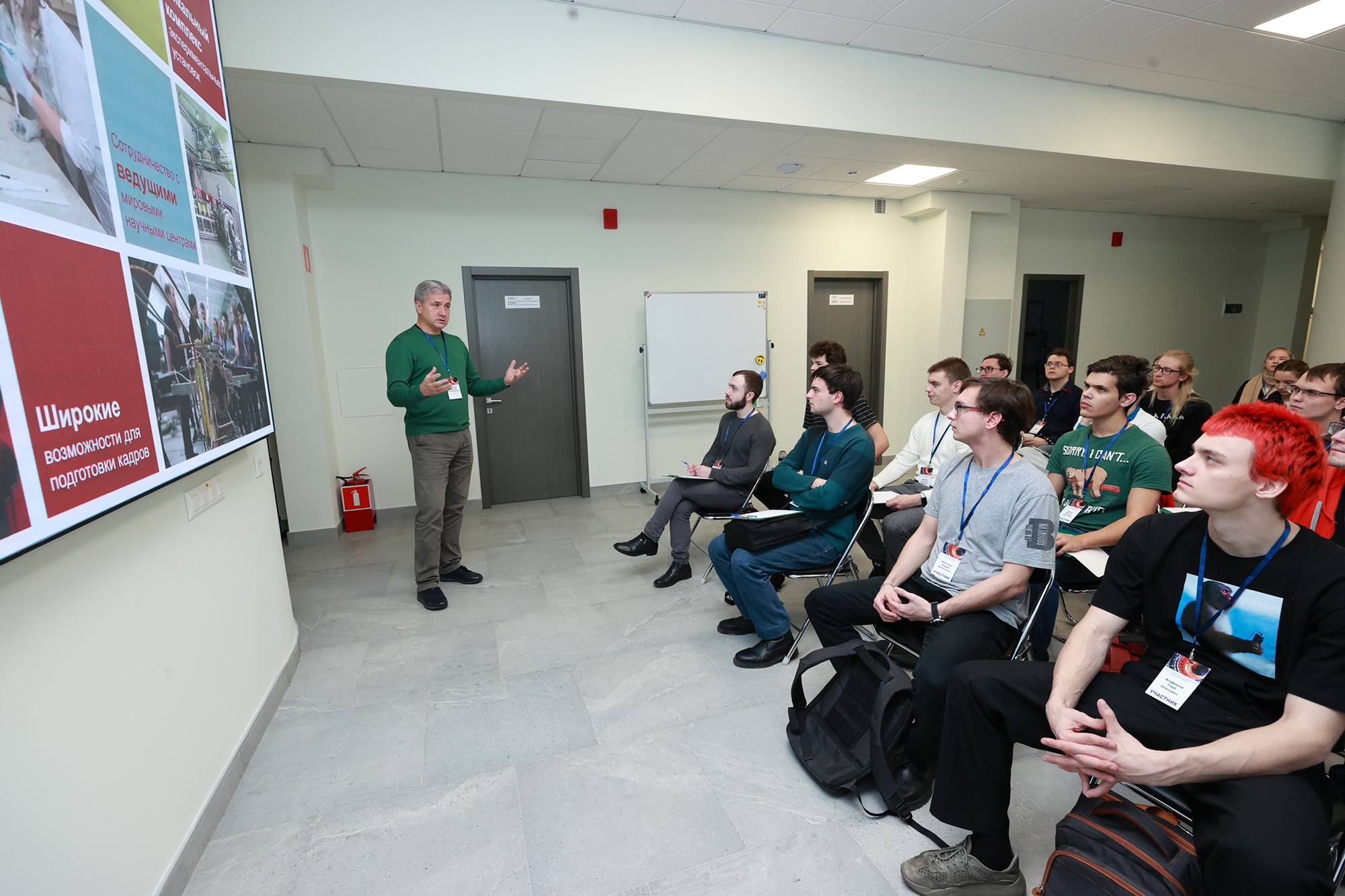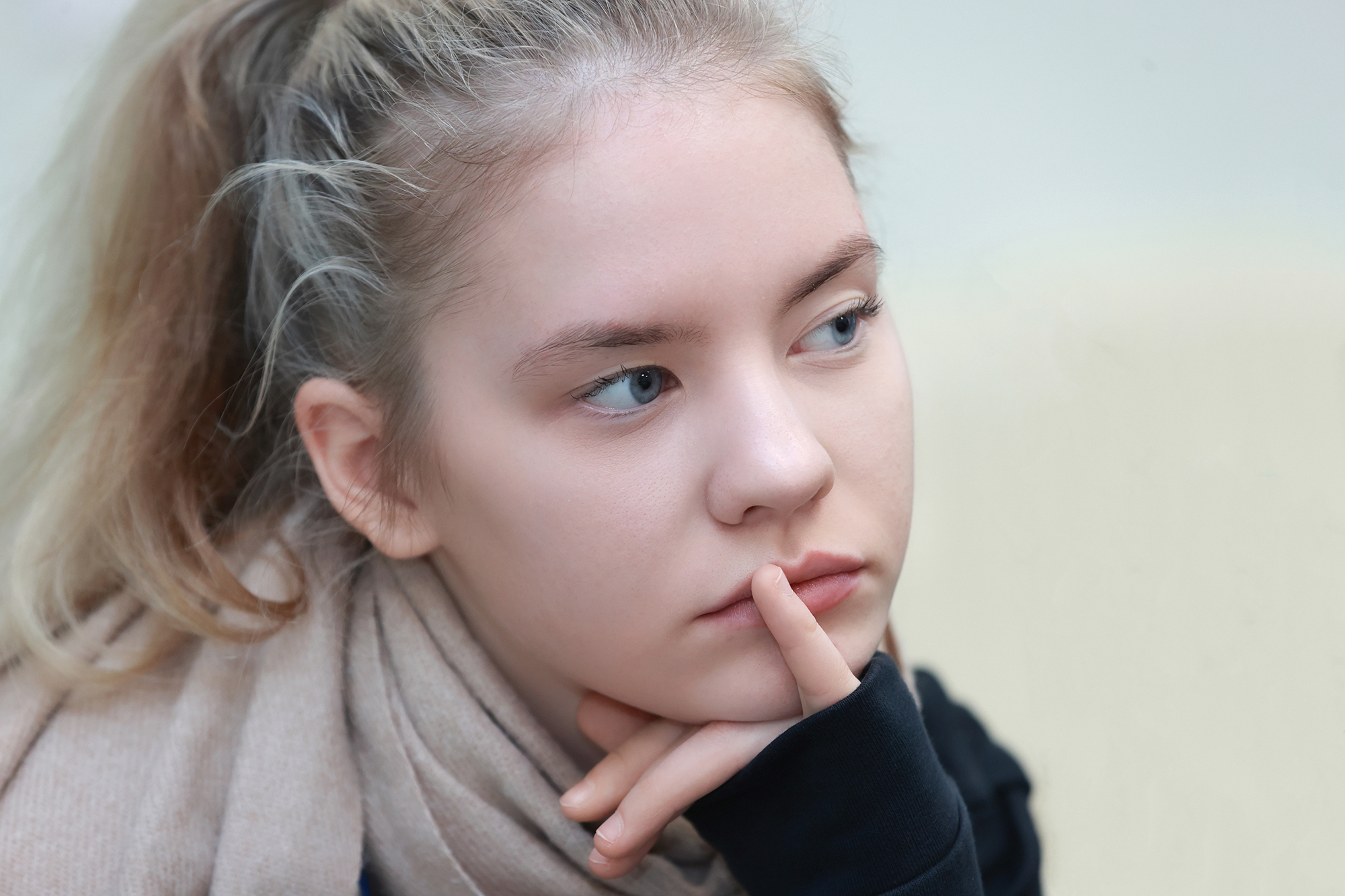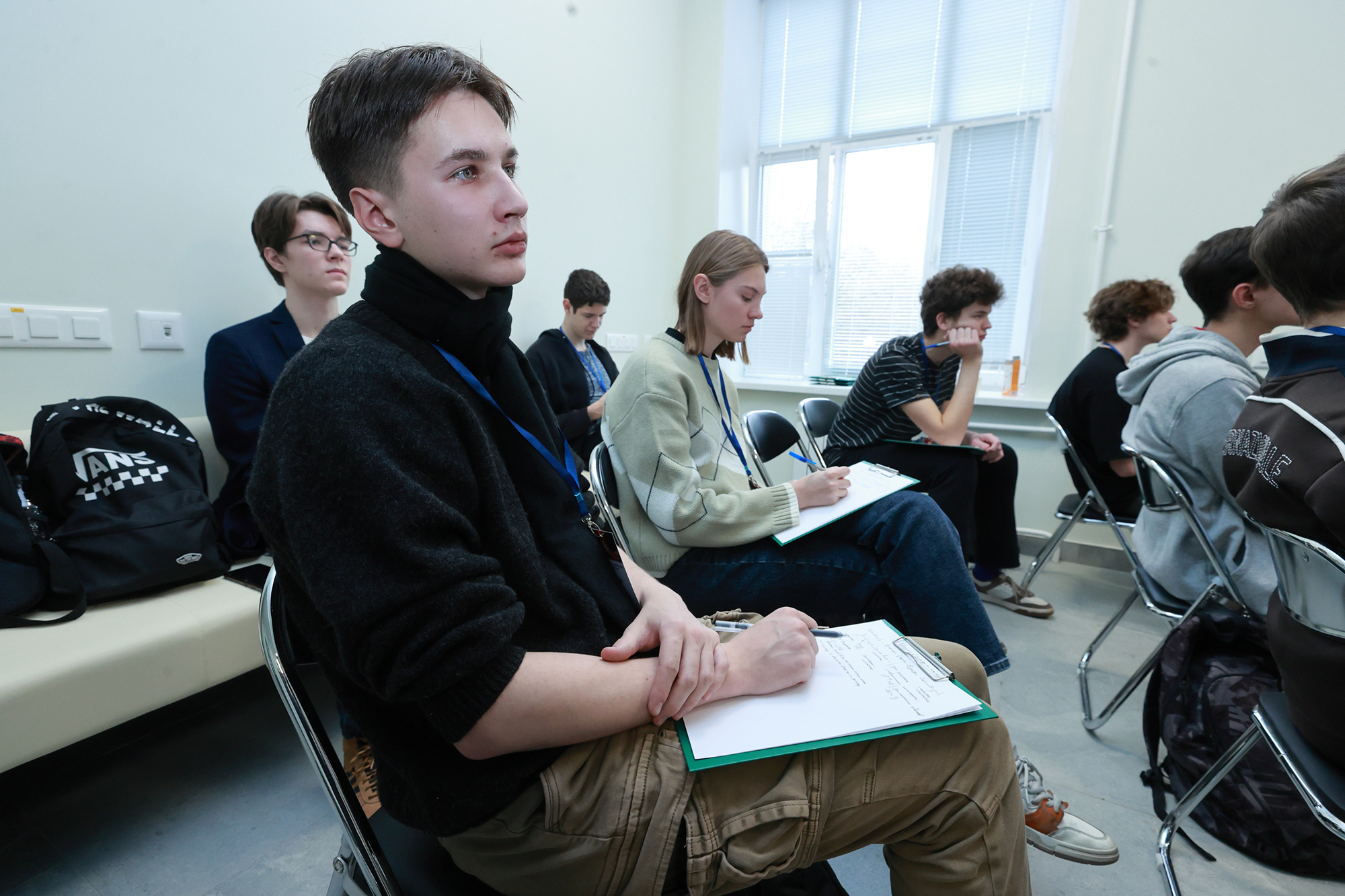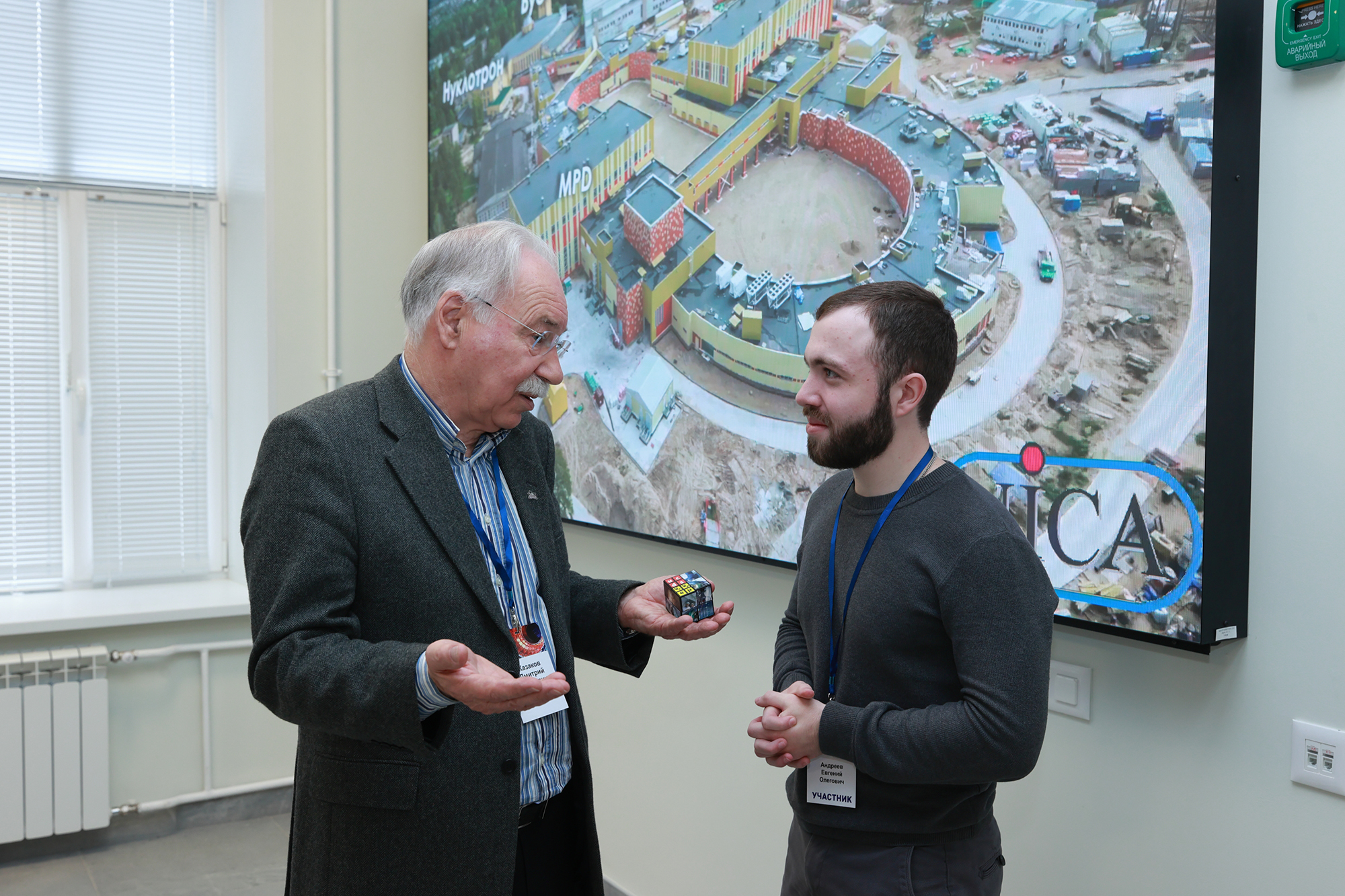JINR hosted School on Physics of Quark-Gluon Matter
News, 23 November 2023
From 16 to 20 November 2023, the Autumn School on the Physics of Quark-Gluon Matter took place at JINR. The JINR University Centre and the JINR Basic Department in MIPT “Fundamental and applied problems of microworld physics” organized the event. The School brought together 30 students of 1st-4th year studying elementary particle physics from universities in Moscow, Tomsk, Saint Petersburg, Novosibirsk, and Voronezh. The School on Physics of Quark-Gluon Matter was held in Dubna for the second time.
One of the main tasks of the School is to attract future scientists to the science being developed at JINR, to show the scientific prospects of participation in experiments at the NICA Complex, which a large international team of the MPD (Multi Purpose Detector) and SPD (Spin Physics Detector) collaborations is preparing for the upcoming launch. In addition, these experiments are already underway at the BM@N (Baryonic Matter at Nuclotron) Facility.
Director of the Bogoliubov Laboratory of Theoretical Physics at JINR, Head of the JINR Basic Department in MIPT “Fundamental and applied problems of microworld physics”, Corresponding Member of the Russian Academy of Sciences, Professor Dmitry Kazakov opened the School with his overview lecture. Leading experts at JINR delivered a series of topical lectures covering a number of fields:
- Introduction to particle physics;
- Methods and approaches to modern experiments in high energy physics;
- Experimental facilities: accelerators, detectors, and computing;
- Theoretical picture of the microworld from the basics of quantum mechanics to the features of the strong nuclear interaction;
- the Standard model;
- Overall picture of current research on quark-gluon matter physics in the world; Experiments at the NICA collider;
During the School, students got acquainted with the activities of the Joint Institute, its structure and history, had a tour of the NICA Complex, and visited the JINR Multifunctional Information and Computing Complex.
At the closing ceremony, Dmitry Kazakov addressed the future scientists with words of encouragement, expressed hope for further cooperation, and presented certificates to the participants.
For the second year in a row, students of the Moscow Institute of Physics and Technology together with students of Lomonosov Moscow State University, the Moscow Engineering Physics Institute, and Bauman Moscow State Technical University participated in the School. In addition, students of the Tomsk State University, the Saint Petersburg University, the Novosibirsk State Technical University, and the Voronezh State University were among the participants of the event.
